DHDD Newsletter – September 2023
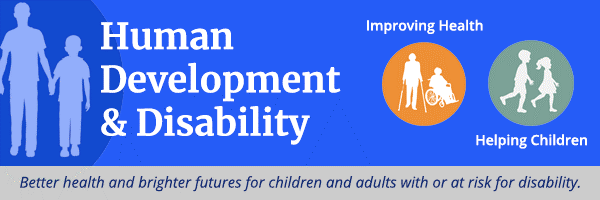
A Note from the DHDD Director
Dear DHDD Partners,
The fall season brings pumpkin spice lattes, busy school schedules, and family gatherings indoors as temperatures cool. To protect yourself and your family this fall and winter virus season, stay up to date on recommended vaccines. Vaccination is the safest protection against hospitalization, long-term health impacts and death. People aged 6 months and older should stay up to date on COVID-19 vaccines and receive a seasonal flu vaccine. If you are 60 years and older, talk to your doctor to see if RSV (respiratory syncytial) vaccination is right for you. As viruses change over time, vaccination remains the best protection we have to avoid severe illness and long-term health effects.

Some disabilities can raise the risk of getting very sick from respiratory viruses, either because of an increased likelihood of having underlying health conditions or because of factors stemming from social determinants of health. CDC offers several resources to help people with disabilities get vaccinated and access COVID-19 tests. In partnership with the Administration for Community Living, the Disability Information and Access Line (DIAL) helps people with disabilities find local vaccination clinics and connect with accessible transportation. In addition, CDC’s Bridge Access Program provides COVID-19 vaccines for adults without health insurance and adults whose insurance does not cover COVID-19 vaccine costs. For more details on either of these programs, see the “Tools and Resources” section of this newsletter.
It’s important to take advantage of safe and effective immunizations and common-sense precautions, such as staying home and away from others when you are sick, to help protect ourselves and our loved ones. For more information, please visit CDC’s website on COVID-19, flu, and RSV. Let’s take care of ourselves and one another so that we can enjoy the upcoming holiday season together.
Sincerely,
Karyl
Karyl Rattay, MD, MS, FAAP
DHDD Director
In the Spotlight
ADDM Network Community Report
Available in Spanish
In recognition of National Hispanic Heritage Month, we honor the diverse cultures and contributions of Hispanic and Latinx Americans, including those with disabilities. As we reflect upon this community’s strength, resilience, and extensive history, the Autism and Developmental Disabilities Monitoring (ADDM) Network offers the 2023 Community Report on Autism in both English and Spanish. This report provides the most recent scientific findings on the number and characteristics of children with autism. According to the ADDM Network 2020 data, autism was more common among Hispanic children and other racial and ethnic minority groups compared with White children. This may reflect improvements in autism awareness and identification among historically under-served groups but highlights a need to understand racial and ethnic differences in autism prevalence.
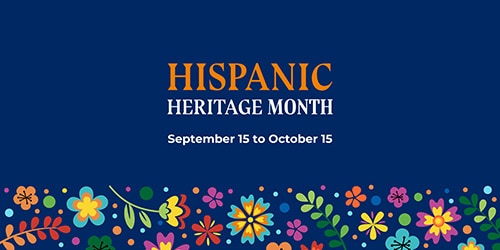
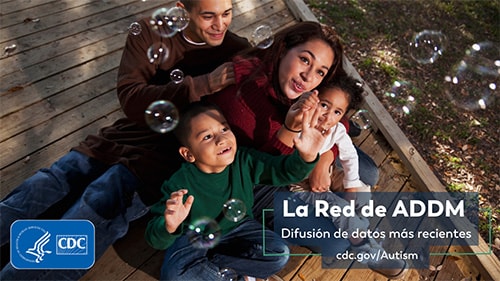
Tools and Resources
CDC Resources Improve Access for Updated COVID-19 Vaccination
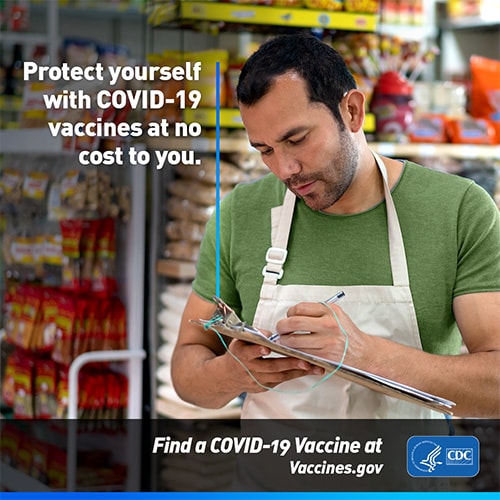
CDC recommends everyone aged 6 months and older get the updated COVID-19 vaccine to protect against serious illness. The new vaccine is a better match to protect against the most common variants circulating now. CDC’s Bridge Access Program provides updated COVID-19 vaccines at no cost to adults without health insurance and adults whose insurance does not cover all COVID-19 vaccine costs through December 2024. Visit www.vaccines.gov to find providers that offer no-cost COVID-19 vaccines through this program. You also can share CDC’s communication toolkit, which includes frequently asked questions and communication resources, to promote COVID-19 vaccination and the Bridge Access Program.
Four Free COVID-19 Home Tests Available for Each Household
The White House has announced free at-home COVID-19 tests are available this fall. Households can now order up to four free tests at covidtests.gov. The tests detect the COVID-19 variants now circulating and can be used through the end of 2023. Shipping is also free.
People with disabilities who need help accessing COVID-19 vaccination services or the free at-home tests can contact the Disability Information and Access Line (DIAL) by emailing DIAL@n4a.org or by calling 1-888-677-1199. Staff are available to assist you from 8am to 9pm Eastern Time, Monday through Friday.
Publications
Emergency Department Visits Increase for Mental and Behavioral Health Conditions in Children and Adolescents
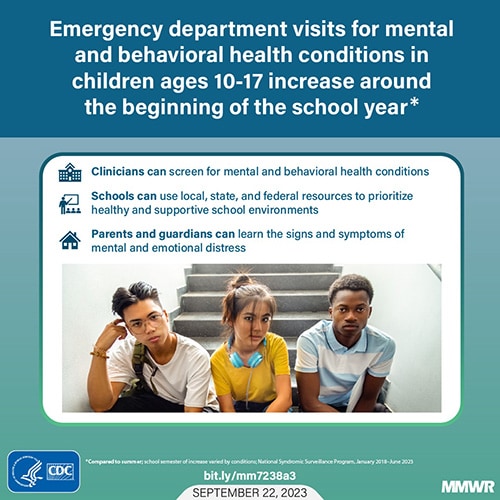
Each year, during 2018–2023, the number and proportion of weekly emergency department (ED) visits for eight mental and behavioral health conditions were up to two times higher during the school semesters compared to summers among children and teens aged 10–17 years. Among children aged 5–9 years, the number and proportion of ED visits increased for five mental and behavioral health conditions. Parents and caregivers, educators, health care providers, and others who regularly interact with children and adolescents can learn about symptoms of mental distress and monitor children and adolescents for possible increases in mental distress in the weeks leading up to and during the academic year.
Partner News and Announcements
ASTHO Report: Advancing Preparedness for Life Support Users During Power Outages
In recognition of National Preparedness Month, the Association of State and Territorial Health Officials (ASTHO) has released a CDC-funded report on Advancing Preparedness for Life Support Users During Power Outages. This report provides a roadmap for jurisdictions to improve support during power outages for people who depend on life support devices and other electric-powered medical equipment in their homes.

